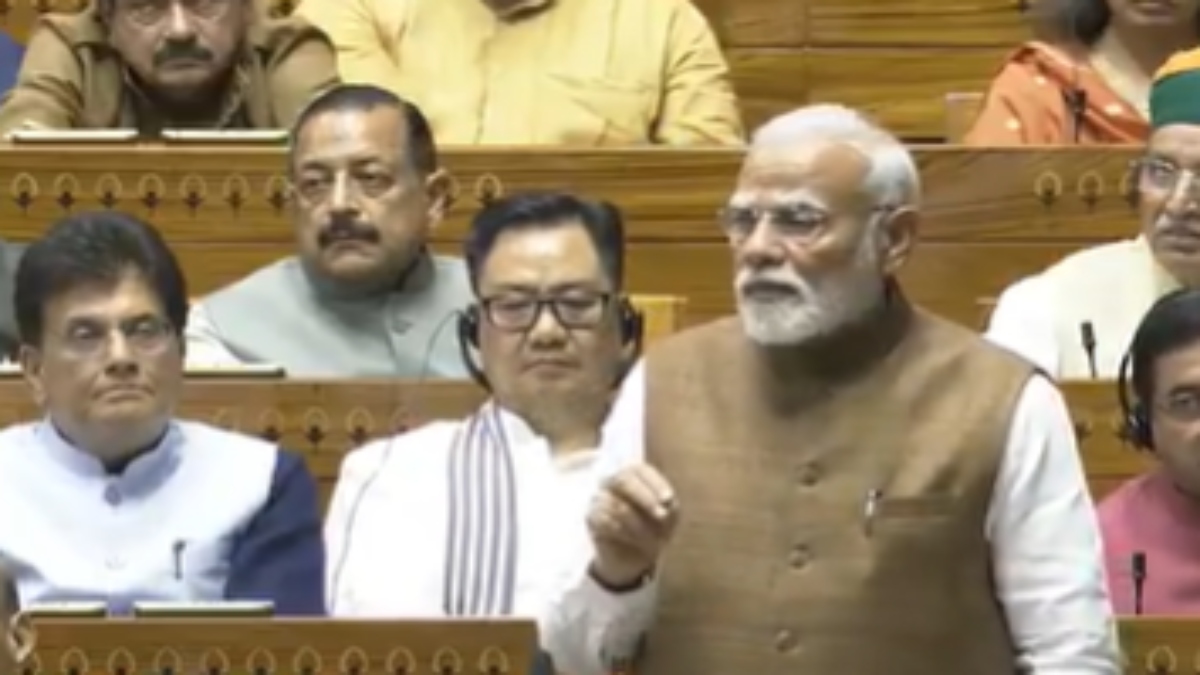Prime Minister Narendra Modi told Parliament on Tuesday that US Vice President JD Vance had cautioned him about a possible Pakistani strike following India’s counter-terror operation in response to the Pahalgam attack.
PM Modi said he firmly conveyed that if Pakistan proceeded, “they would pay dearly.”
#WATCH | PM Modi says, "On the night of 9th May, the Vice President of America tried to talk to me. He tried for an hour, but I was in a meeting with my army, so I could not pick up his call. Later, I called him back. The Vice President of America told me on the phone that… pic.twitter.com/OvQblROkft
— ANI (@ANI) July 29, 2025
“On May 9 night, US Vice President tried to reach out to me 3-4 times, but I was busy with meetings with the armed forces” said PM Modi in Lok Sabha.
“When I returned the call, US Vice President warned me of a big attack from Pakistan. Told US VP that if Pakistan attacks India, our attack would be much bigger as we will respond to bullets with cannons,” added PM Modi.
Rejecting Opposition’s claims that India’s counter-terror operation was restrained or influenced by external pressure, PM Modi asserted that the armed forces were operating with “full confidence”.
Impact Shorts
More ShortsHis remarks came shortly after Leader of Opposition and Congress MP Rahul Gandhi alleged that the government lacked the political will to fully support the armed forces during Operation Sindoor.
Speaking in the Lok Sabha earlier, Gandhi claimed that the military’s operational scope had been restricted by political leadership and that key details were prematurely shared with Pakistan.
Gandhi pointed to Defence Minister Rajnath Singh’s earlier statement in the House, saying: “These are not my words,” he said. “These are the words of India’s defence minister.”
Referring to Singh’s comments, Gandhi said India’s DGMO had informed Pakistan just minutes after the strikes began that only non-military targets were hit and that escalation was not intended.
“You attacked Pakistan and simultaneously told them we are not going to hit your army or air defence systems. That is not freedom of manoeuvre; that is surrender,” Gandhi said, adding that Indian aircraft losses were the result of such constraints.
Responding to Gandhi, PM Modi emphasised that India had not backed down under any global pressure. “No global leader told us to stop,” he said.
“The operation is still on. India’s forces are acting with full confidence. Pakistan’s nuclear threats don’t work anymore.”
PM Modi said India had dealt significant blows to Pakistan’s terror infrastructure.
“Terrorist launchpads were destroyed. Sites like Bahawalpur and Muridke, where no one imagined we could strike, have been hit hard. Pakistan’s airbases and assets have suffered major damage. Many of their installations are still in ICU,” he told Parliament.
He also hailed India’s defence self-reliance, saying, “From drones to missiles, our entire operation was powered by Made-in-India systems. The world is witnessing the strength of a self-reliant India.”
On the continued threat from Pakistan, PM Modi made it clear that India would decide the duration and terms of its response.
“Operation Sindoor is not over. It will continue for as long as necessary. India will decide the terms and on its own timeline and on its own terms,” he said.
Without naming the Congress directly, PM Modi criticised Opposition leaders for questioning the mission.
“At a time when our forces are engaged in a battle of resolve, some are playing politics. Today’s warfare includes narratives and information. Weakening the morale of our troops through misinformation helps the enemy,” he added.
With inputs from agencies


)

)
)
)
)
)
)
)
)



